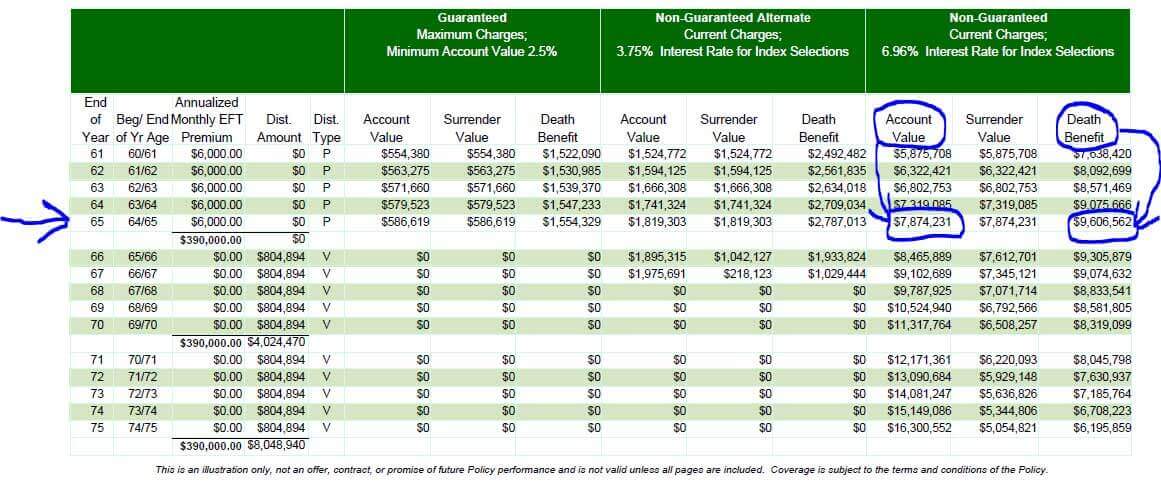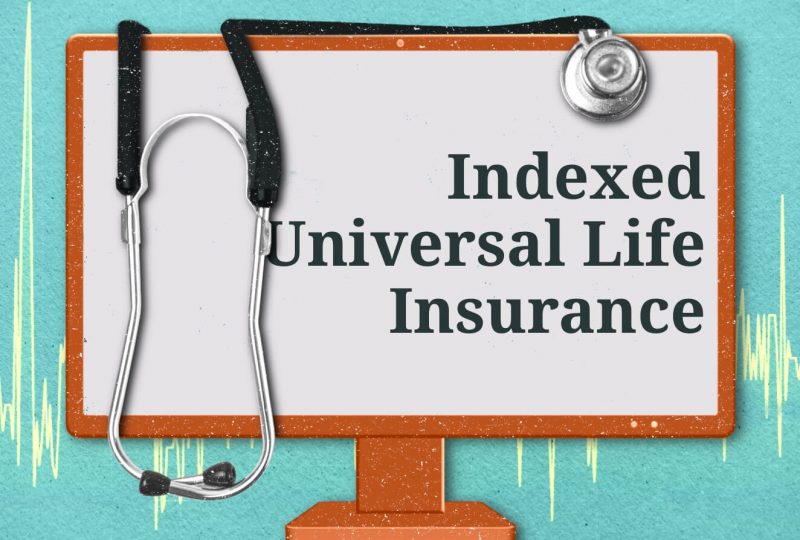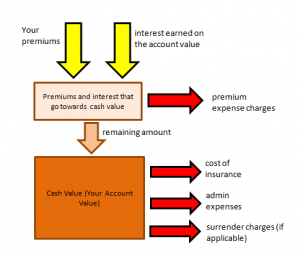All Categories
Featured
Table of Contents

[/image][=video]
[/video]
You can underpay or skip premiums, plus you may have the ability to adjust your survivor benefit. What makes IUL different is the method the cash worth is spent. When you take out an indexed universal life insurance policy policy, the insurer provides several alternatives to pick a minimum of one index to make use of for all or part of the money value account segment of your plan and your survivor benefit.
Cash money value, along with prospective development of that value via an equity index account. An option to allocate part of the cash value to a fixed passion alternative.
Moodle Iul
Insurance holders can make a decision the percentage allocated to the fixed and indexed accounts. The worth of the picked index is tape-recorded at the start of the month and compared to the value at the end of the month. If the index enhances during the month, rate of interest is included in the cash value.
The 6% is multiplied by the cash value. The resulting passion is added to the cash money worth. Some policies calculate the index gets as the amount of the changes for the duration, while various other plans take approximately the daily gains for a month. No passion is credited to the money account if the index decreases as opposed to up.
What Does Iul Stand For? A Guide To Indexed Universal Life
The price is established by the insurance policy business and can be anywhere from 25% to greater than 100%. (The insurance firm can additionally change the get involved rate over the lifetime of the plan.) For example, if the gain is 6%, the involvement rate is 50%, and the current cash money value total amount is $10,000, $300 is included in the money value (6% x 50% x $10,000 = $300).
There are a variety of pros and cons to consider prior to buying an IUL policy.: Similar to common global life insurance policy, the insurance policy holder can enhance their costs or reduced them in times of hardship.: Amounts credited to the cash value grow tax-deferred. The cash worth can pay the insurance policy premiums, allowing the insurance holder to decrease or stop making out-of-pocket costs settlements.
Many IUL policies have a later maturity date than various other sorts of universal life policies, with some ending when the insured reaches age 121 or more. If the insured is still active back then, policies pay the survivor benefit (however not normally the cash money worth) and the proceeds might be taxed.
Indexed Universal Life Insurance
: Smaller policy face worths do not offer much advantage over normal UL insurance policies.: If the index decreases, no passion is attributed to the cash worth. (Some policies provide a low assured rate over a longer duration.) Various other financial investment automobiles use market indexes as a benchmark for efficiency.

With IUL, the goal is to make money from upward movements in the index.: Because the insurance provider only gets options in an index, you're not directly spent in supplies, so you don't benefit when firms pay dividends to shareholders.: Insurers fee costs for handling your cash, which can drain pipes cash money value.
For many individuals, no, IUL isn't far better than a 401(k) in regards to saving for retirement. Most IULs are best for high-net-worth individuals looking for methods to reduce their gross income or those who have maxed out their various other retirement alternatives. For everybody else, a 401(k) is a better financial investment lorry because it doesn't bring the high fees and costs of an IUL, plus there is no cap on the quantity you might make (unlike with an IUL policy).
While you may not shed any type of cash in the account if the index drops, you will not make rate of interest. If the marketplace transforms bullish, the profits on your IUL will certainly not be as high as a regular financial investment account. The high price of costs and fees makes IULs pricey and substantially much less economical than term life.
Indexed global life (IUL) insurance uses money worth plus a fatality benefit. The cash in the cash money worth account can earn interest with tracking an equity index, and with some typically allocated to a fixed-rate account. However, Indexed universal life plans cap exactly how much money you can collect (frequently at less than 100%) and they are based upon a potentially unpredictable equity index.
Iul Life Insurance Investment

A 401(k) is a better choice for that function since it doesn't bring the high costs and premiums of an IUL plan, plus there is no cap on the amount you might gain when invested. The majority of IUL policies are best for high-net-worth people seeking to decrease their taxable income. Investopedia does not give tax, investment, or financial solutions and guidance.
FOR FINANCIAL PROFESSIONALS We've developed to give you with the very best online experience. Your current web browser may limit that experience. You might be utilizing an old browser that's in need of support, or setups within your internet browser that are not suitable with our site. Please save on your own some irritation, and upgrade your web browser in order to see our website.
Your present internet browser: Identifying ...
When your selected index gains value, worth too does as well policy's cash valueMoney Your IUL cash money value will also have a minimal passion rate that it will certainly always earn, no matter of market performance. An IUL plan works the very same means as a standard universal life plan, with the exemption of exactly how its money value makes interest.
Index Universal Life Insurance Uk
If you're taking into consideration buying an indexed universal life policy, first consult with a monetary expert who can explain the nuances and give you an exact image of the actual potential of an IUL policy. Make certain you understand just how the insurance firm will certainly calculate your passion rate, incomes cap, and costs that may be examined.

Part of your costs covers the plan price, while the rest goes into the cash value account, which can expand based on market efficiency. While IULs might appear eye-catching, they typically come with high fees and stringent terms and are totally unsuitable for many investors. They can produce passion yet additionally have the prospective to lose money.
Here are some factors that you must think about when figuring out whether a IUL plan was ideal for you:: IULs are intricate financial items. Ensure your broker completely described just how they work, including the costs, investment threats, and cost structures. There are more affordable choices offered if a survivor benefit is being looked for by a financier.
Iul Mutual Of Omaha
These can substantially reduce your returns. If your Broker stopped working to supply a comprehensive description of the costs for the plan this can be a warning. Understand abandonment fees if you determine to cancel the plan early.: The financial investment component of a IUL undergoes market variations and have a cap on returns (definition that the insurance policy firm gets the benefit of stellar market efficiency and the capitalist's gains are capped).
: Ensure you were outlined and are able to pay sufficient premiums to keep the policy effective. Underfunding can bring about policy lapses and loss of insurance coverage. If your Broker stops working to explain that costs payments are necessary, this could be a red flag. It is important to thoroughly research study and comprehend the terms, charges, and possible threats of an IUL policy.
Standard growth investments can often be coupled with much more affordable insurance policy options if a fatality benefit is very important to an investor. IULs are exempt from federal regulation under the Dodd-Frank Act, indicating they are not managed by the U.S. Securities and Exchange Compensation (SEC) like stocks and choices. Insurance agents offering IULs are just required to be accredited by the state, not to undergo the same strenuous training as stockbrokers.
Table of Contents
Latest Posts
Universal Life Insurance
Iul Illustration
Universal Life Insurance
More
Latest Posts
Universal Life Insurance
Iul Illustration
Universal Life Insurance